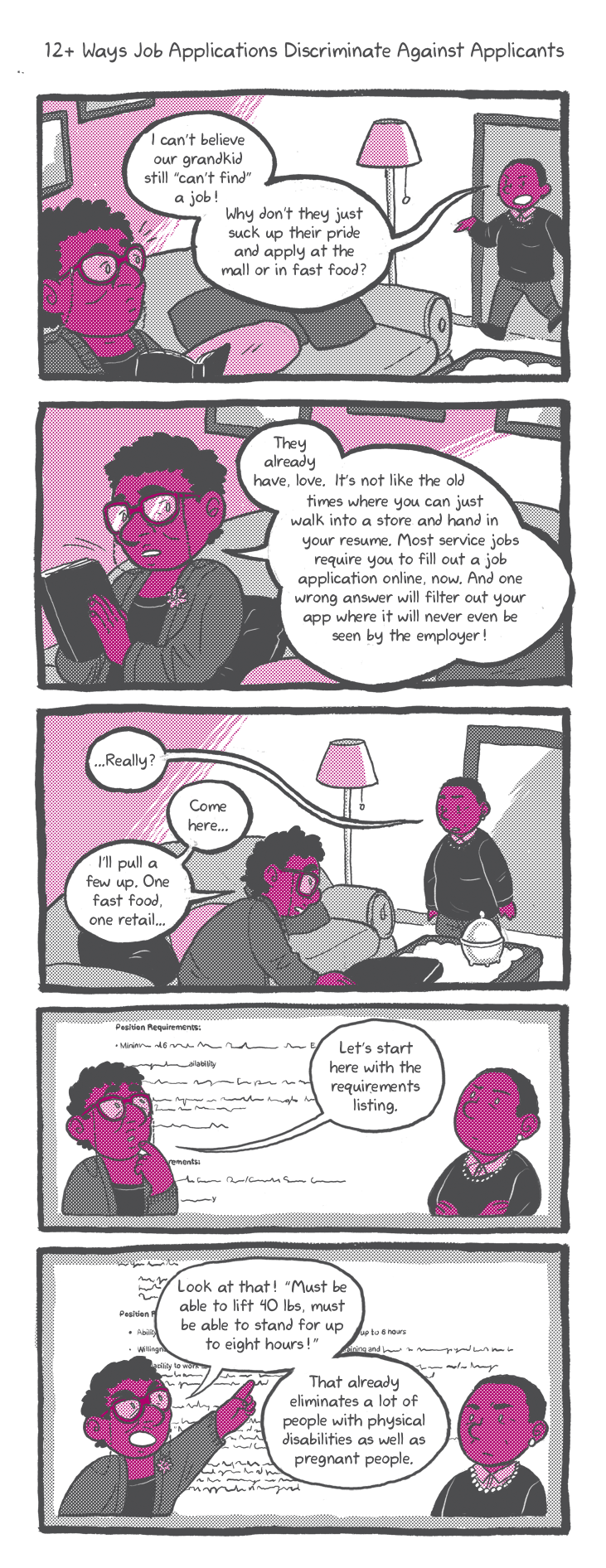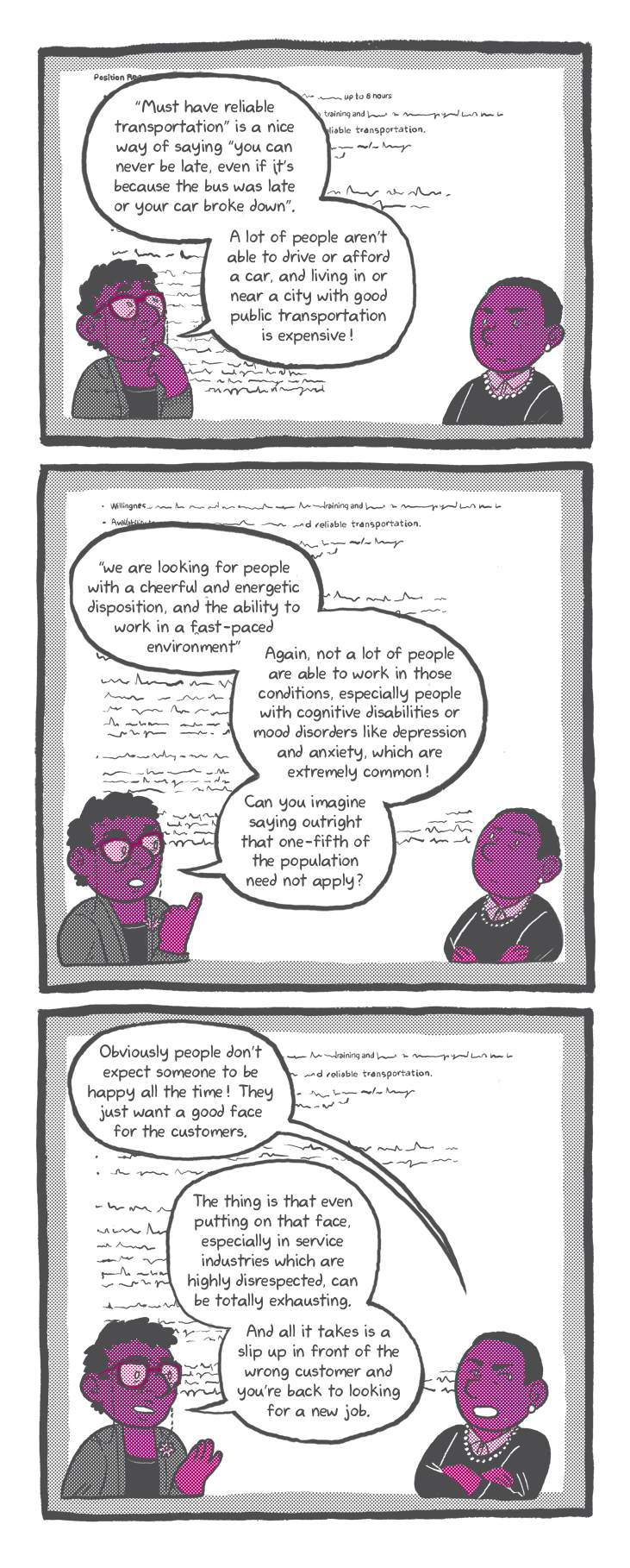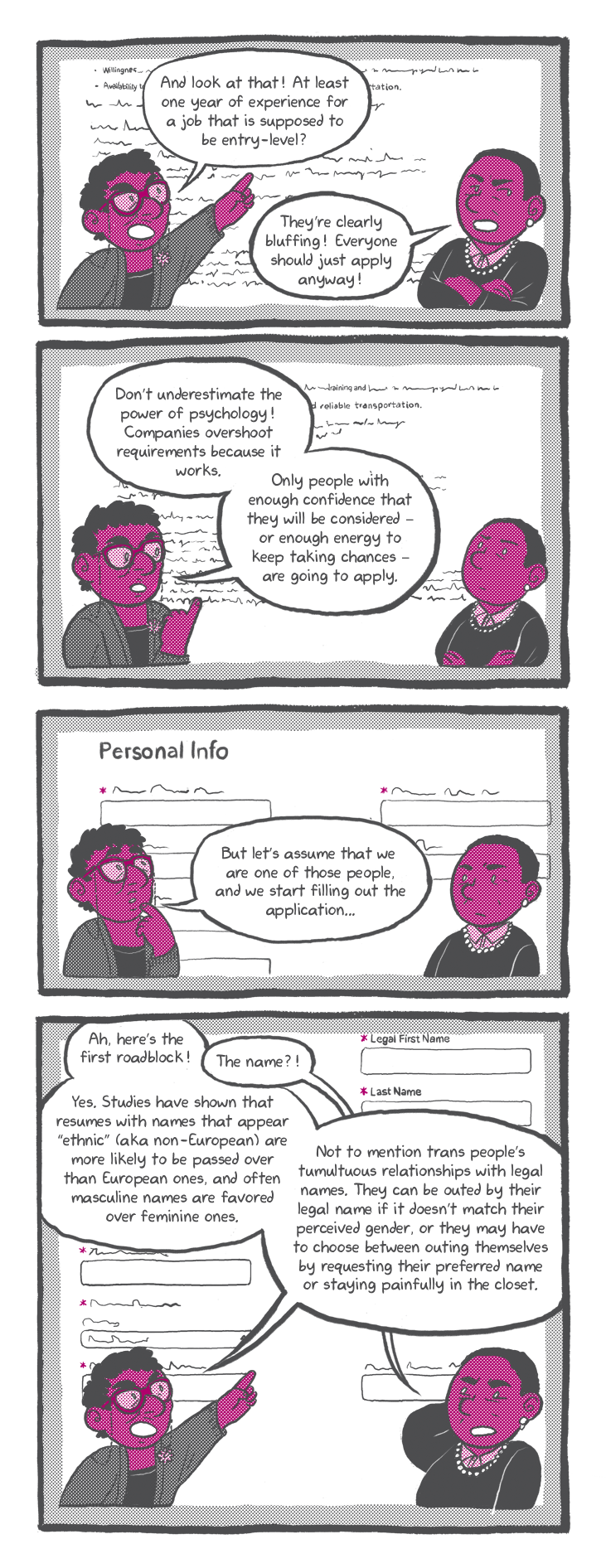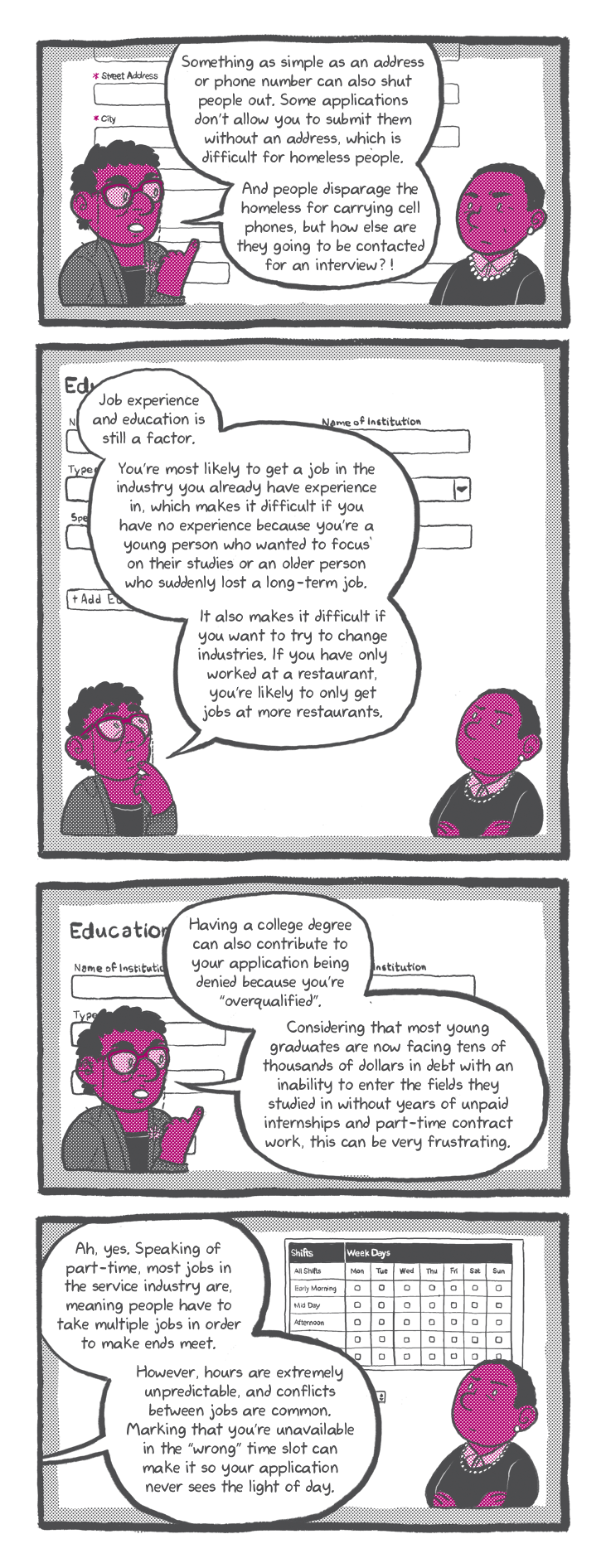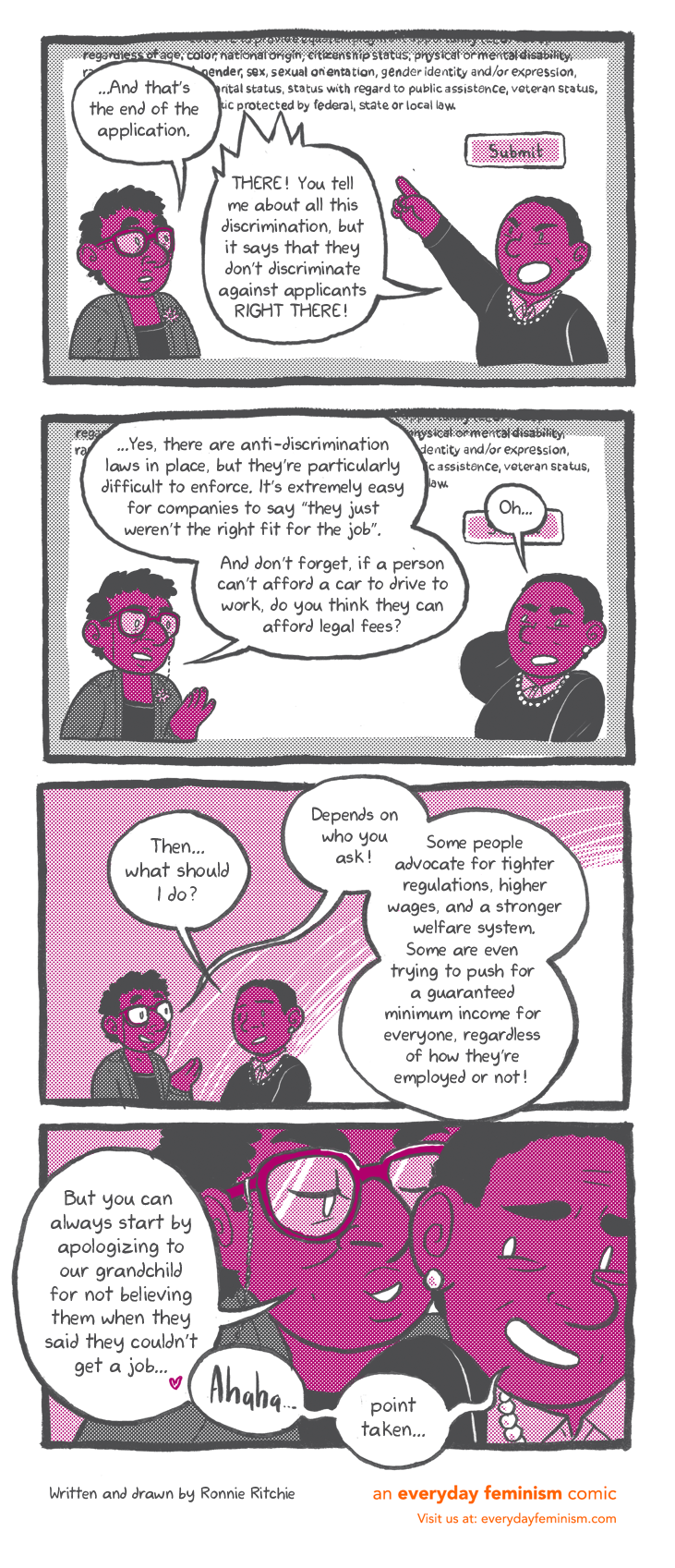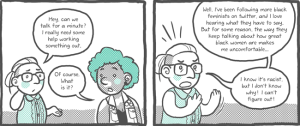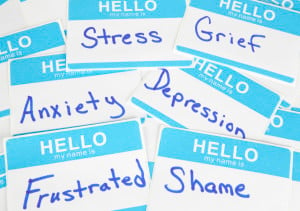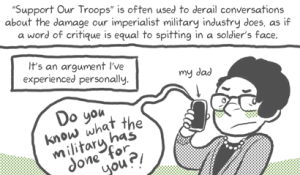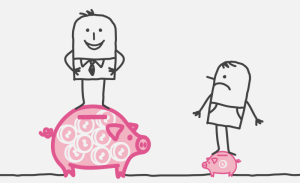Panel 1
(An older couple is spending time together after a family visit. Partner A comes into the room, making a broad gesture. Partner B looks up from their book.)
Partner A: I can’t believe our grandkid still “can’t find” a job! Why don’t they just suck up their pride and apply at the mall or in fast food?
Panel 2
(Partner B closes their book.)
Partner B: They already have, love. It’s not like the old times where you can just walk into a store and hand in your resume. Most service jobs require you to fill out a job application online, now. And one wrong answer will filter out your app where it will never even be seen by the employer!
Panel 3
(Partner A’s arms drop to their sides. Partner B reaches for an old laptop on the coffee table.)
Partner A: …Really?
Partner B: Come here… I’ll pull a few up… One fast food, one retail…
Panel 4
(The couple appears, transposed onto the display of the job posting.)
Partner B: Let’s start here with the requirements listing.
Panel 5
(Partner B points at a part of the job requirements.)
Partner B: Look at that! “Must be able to lift 40 lbs, must be able to stand for up to eight hours!” That already eliminates a lot of people with physical disabilities, as well as pregnant people.
Panel 6
(Partner B scrolls down, stopping at another section.)
Partner B: “Must have reliable transportation” is a nice way of saying “you can never be late, even if it’s because the bus was late or your car broke down”. A lot of people aren’t able to drive or afford a car, and living in or near a city with good public transportation is expensive!
Panel 7
Partner B: “We are looking for people with a cheerful and energetic disposition, and the ability to work in a fast-paced environment” Again, not a lot of people are able to work in those conditions, especially people with cognitive disabilities or mood disorders like depression and anxiety, which are extremely common! Can you imagine saying outright that one-fifth of the population need not apply?
Panel 8
(Partner A scoffs.)
Partner A: Obviously people don’t expect someone to be happy all the time! They just want a good face for the customers.
Partner B: The thing is that even putting on that face, especially in service industries which are highly disrespected, can be totally exhausting. And all it takes is a slip up in front of the wrong customer and you’re back to looking for a new job.
Panel 9
Partner B: And look at that! At least one year of experience for a job that is supposed to be entry-level?
Partner A: They’re clearly bluffing! Everyone should just apply anyway!
Panel 10
Partner B: Don’t underestimate the power of psychology! Companies overshoot requirements because it works. Only people with enough confidence that they will be considered – or enough energy to keep taking chances – are going to apply.
Panel 11
(The couple is transposed on a form labeled “Personal Info” as they study the job application.)
Partner B: But let’s assume that we are one of those people, and we start filling out the application…
Panel 12
(Partner B stops and gestures at the top of the application, where blanks labeled “Legal First Name” and “Last Name” wait to be filled in. Partner A gawks.)
Partner B: Ah, here’s the first roadblock!
Partner A: The name?!
Partner B: Yes. Studies have shown that resumes with names that appear “ethnic” (aka non-European) are more likely to be passed over than European ones, and often masculine names are favored over feminine ones. Not to mention trans people’s tumultuous relationships with legal names. They can be outed by their legal name if it doesn’t match their perceived gender, or they may have to choose between outing themselves by requesting their preferred name or staying painfully in the closet.
Panel 13
Partner B: Something as simple as an address or phone number can also shut people out. Some applications don’t allow you to submit them without an address, which is difficult for homeless people. And people disparage the homeless for carrying cell phones, but how else are they going to be contacted for an interview?!
Panel 14
(Partner B looks down at the fields asking for information about the applicant’s education.)
Partner B: Job experience and education are still factors. You’re most likely to get a job in the industry you already have experience in, which makes it difficult if you have no experience because you’re a young person who wanted to focus on their studies or an older person who suddenly lost a long-term job. It also makes it difficult if you want to try to change industries. If you have only worked at a restaurant, you’re likely to only get jobs at more restaurants.
Panel 15
Partner B: Having a college degree can also contribute to your application being denied because you’re “overqualified”. Considering that most young graduates are now facing tens of thousands of dollars in debt with an inability to enter the fields they studied in without years of unpaid internships and part-time contract work, this can be very frustrating.
Panel 16
(Partner B gestures at a graph of days of the week split into time slots, with empty boxes to be checked next to each one.)
Partner B: Ah, yes. Speaking of part-time, most jobs in the service industry are, meaning people have to take multiple jobs in order to make ends meet. However, hours are extremely unpredictable, and conflicts between jobs are common. Marking that you’re unavailable in the “wrong” time slot can make it so your application never sees the light of day.
Panel 17
(Partner B gestures to a consent form for a background check.)
Partner B: And then there’s background checks, credit checks, and drug testing. All of these tests claim to determine how effective of an employee someone is, but it rarely says anything at all. Background checks pull up charges disproportionately leveled against people of color. Credit checks are unpredictable and can be affected as much by sudden medical emergencies and predatory lending as poor spending. Finally, drug testing only perpetuates stereotypes about who abuses drugs and why, and often targets people with chronic pain as well.
Panel 18
(Partner A scratches the back of their neck, floored by all of this information.)
Partner A: Good lord, is there any MORE?
Partner B: Unfortunately yes, because we’ve come to the personality questionnaire.
Panel 19
(The couple is now transposed over a display of a questionnaire labeled “Describing your Strengths and Weaknesses”. Each question has four possible answers to choose from, including “Strongly Disagree”, “Disagree”, “Agree”, and “Strongly Agree.”)
Partner B: These questionnaires are extremely vague, difficult to understand, and give the impression of just asking about people’s personalities while also having a “right” and “wrong” answer. Click any of the “wrong” answers, even if you are being truthful or have a nuanced reason for clicking it, and your application is filtered out.
Panel 20
Partner B: These questionnaires are often a precursor of what interviews are like for people who apply. People, even people who don’t have ADHD or Autism or other neurotypes that make them seem “weird” and “unpersonable” to others, have to LEARN what the right answers are. They have to TRAIN to do interviews well. Employment centers offer assistance with these matters, but it exposes just how much time and energy is needed, JUST to get a job that is supposed to be base-line, easy and plentiful.
Panel 21
(Partner B scrolls to the bottom of the page, where there is an Equal Opportunity statement and a “submit application” button.)
Partner B: …And that’s the end of the application.
Partner A: (points at the Equal Opportunity statement, shouting) THERE! You tell me about all this discrimination, but it says that they don’t discriminate against applicants RIGHT THERE!
Panel 22
(Partner B frowns, explaining.)
Partner B: …Yes, there are anti-discrimination laws in place, but they’re particularly difficult to enforce. It’s extremely easy for companies to say “they just weren’t the right fit for the job”. And don’t forget, if a person can’t afford a car to drive to work, do you think they can afford legal fees?
(Partner A’s shoulders sag.)
Partner A: Oh…
Panel 23
(Partner A looks up at Partner B. Partner B smiles kindly.)
Partner A: Then… what should I do?
Partner B: Depends on who you ask! Some people advocate for tighter regulations, higher wages, and a stronger welfare system. Some are even trying to push for a guaranteed minimum income for everyone, regardless of how they’re employed or not!
Panel 24
(Smiling more dangerously, Partner B leans in and whispers in Partner A’s ear. Partner A grins sheepishly.)
Partner B: But you can always start by apologizing to our grandchild for not believing them when they said they couldn’t get a job…
Partner A: Ahaha… point taken…


